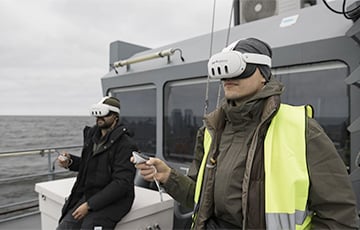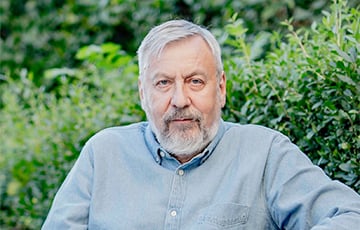The Times: NATO Is Developing Robot Army
3- 4.11.2024, 13:18
- 2,760

Which will be able to interact on the ground and in the sky.
NATO countries are actively developing new weapons that will allow them to gain a technological advantage over Russia. The Times reported on a ground robot at a military base in Latvia, which is controlled by a Spanish operator via a 5G network from Madrid.
According to Latvian Defense Minister Andris Spruds, this device is currently used on a “limited scale,” but now NATO wants it to work smoothly at a “deeper level.”
The idea is to be able to coordinate many robotic systems and have them work together — robots on the ground, drones in the sky under the control of the military far from the front line.
“The future of modern warfare is being shaped in Ukraine. To overcome the Russian threat, maintaining a technological advantage is extremely important. I want to emphasize the importance of not falling behind,” said Estonian Prime Minister Kristen Michal.
In his opinion, NATO’s previous defense commitments were “insufficient” and could “leave us behind.” The Prime Minister believes that the Alliance countries should always set new goals for themselves.
As the publication points out, a “flying Javelin” has also been developed — the Beak high-precision weapon system. It launches a munition and returns to base, which is more practical, unlike expensive kamikaze drones.
An unmanned ground vehicle has also been created that transports a wounded soldier to a safe place, and a surface ship that can patrol an area without a crew.
Against the backdrop of NATO's efforts in the technological sphere, there are other problems for member countries. In particular, the possible victory of Donald Trump in the US presidential election.
According to Michal, he, like Trump, wants NATO allies to contribute more to defense. Estonia will soon spend 3.5% of its national income on defense, while Great Britain spends 2.3% of GDP on this.
At the same time, the politician supports the victory plan of Ukrainian President Volodymyr Zelensky, which he described as “reliable”. This would put Ukraine in a stronger position and force Russia to negotiate.
“And not the other way around. Because, frankly speaking, we know Russia — politeness means weakness for them,” Michal emphasized.
He also spoke out against restrictions on Ukraine's use of long-range weapons.
Latvian Prime Minister Evika Silina added that waiting for the results of the US elections has already led to “an unpredictable future” during the conflict in Ukraine and the Middle East. As she explained, the allies need strong leadership from the US.











